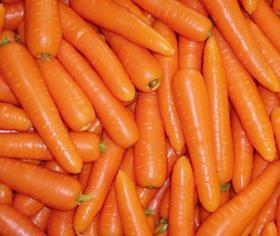
The availability of iconic British fruit and vegetables could be drastically reduced by stricter controls on measures to tackle weeds, disease and pests.
The claim was made in an NFU-commissioned report released today, which looked at the economic impact of 40 plant protection products (PPPs) such as insecticides on UK agriculture and the wider economy.
It found that the production of apples and carrots, among other crops, is under threat as a result of the loss or restricted use of ingredients in PPPs brought about by changes to EU and national regulations.
The report, co-commissioned by the Agricultural Industries Confederation (AIC) and the Crop Protection Association (CPA), also found that the implications for the control of weeds, disease and pests in key UK crops would have an impact on the gross added value of UK agriculture, including horticulture, which would allegedly fall by £1.6 billion a year.
Farm business consultant Andersons, which compiled the report, claimed that 44,000 jobs in agriculture and the wider food and drink industry are at risk, and profits could drop by 36 per cent from current levels.
NFU vice president, Guy Smith, said: “We have been warning that in the lifetime of the current European Parliament, we would face significant threats to PPPs. This important and timely report has confirmed and added clarity to the negative impacts that losses and restrictions on PPPs would have on UK food production, on farm and throughout the supply chain.
“It is absolutely essential that farmers have regulation that is risk-based and that it follows sound science to ensure the farming sector keeps growing and contributing to the £97bn UK food and drink industry. For this to happen we need government at both UK and EU level to put British food production at the heart of policy-making across all government departments.”
Nick von Westenholz, CPA chief executive officer, said: “The report provides a clear picture of the implications of the flawed system that governs pesticide use in the EU.
“Hopefully European policy-makers will now realise how imperative it is to make a proper assessment of risk and impact when they take decisions affecting food production, and to make sure they foster rather than stifle innovation. If not, farmers can no longer expect to benefit from increasingly targeted and effective crop protection products as industry diverts investment away from Europe.”
And David Hutchinson, AIC strategy group member, added: “This report highlights the serious effects of policy and regulatory decisions that are not based on sound science. Any crop protection product should be assessed in the wider context of a food production strategy, so that agronomists have at their disposal both cultural controls and a range of chemistry to help farmers and growers sustain UK food production.”



